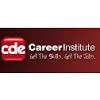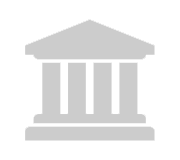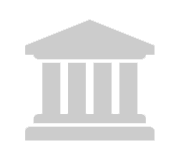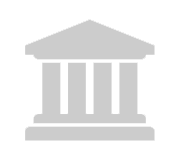What do they do?
Compose letters or electronic correspondence in reply to requests for merchandise, damage claims, credit and other information, delinquent accounts, incorrect billings, or unsatisfactory services. Duties may include gathering data to formulate reply and preparing correspondence.
Also known as:
Chargeback Specialist, Claims Correspondence Clerk, Correspondence Clerk, Correspondence Coordinator, Correspondence Representative (Correspondence Rep), Correspondent, Dispute Resolution Analyst, Dispute Specialist, Office Technician (Office Tech), Student Loans Correspondent, Technical Clerk
-
-10%
Change
Ranks #37 in job growth rate20Job Openings
Ranks #17 in net job growth
Looking for colleges that offer a specific major? Use the College Match Tool to find your best-matched schools and discover your estimated Net Price!
- High school diploma equivalent (31%)
- Some college, no degree (29%)
- Bachelor's degree (20%)
- Associate's degree (10%)
- Less than high school diploma (7%)
- Master's degree (3%)
- Doctorate or Professional Degree (1%)
People in this career often have these skills:
- Writing - Communicating effectively in writing as appropriate for the needs of the audience.
- Reading Comprehension - Understanding written sentences and paragraphs in work-related documents.
- Active Listening - Giving full attention to what other people are saying, taking time to understand the points being made, asking questions as appropriate, and not interrupting at inappropriate times.
- Speaking - Talking to others to convey information effectively.
- Critical Thinking - Using logic and reasoning to identify the strengths and weaknesses of alternative solutions, conclusions, or approaches to problems.
People in this career often know a lot about:
- Administrative - Knowledge of administrative and office procedures and systems such as word processing, managing files and records, stenography and transcription, designing forms, and workplace terminology.
- English Language - Knowledge of the structure and content of the English language including the meaning and spelling of words, rules of composition, and grammar.
- Customer and Personal Service - Knowledge of principles and processes for providing customer and personal services. This includes customer needs assessment, meeting quality standards for services, and evaluation of customer satisfaction.
- Economics and Accounting - Knowledge of economic and accounting principles and practices, the financial markets, banking, and the analysis and reporting of financial data.
- Mathematics - Knowledge of arithmetic, algebra, geometry, calculus, statistics, and their applications.
- Computers and Electronics - Knowledge of circuit boards, processors, chips, electronic equipment, and computer hardware and software, including applications and programming.
People in this career often have talent in:
- Written Expression - The ability to communicate information and ideas in writing so others will understand.
- Written Comprehension - The ability to read and understand information and ideas presented in writing.
- Oral Comprehension - The ability to listen to and understand information and ideas presented through spoken words and sentences.
- Oral Expression - The ability to communicate information and ideas in speaking so others will understand.
- Near Vision - The ability to see details at close range (within a few feet of the observer).
- Problem Sensitivity - The ability to tell when something is wrong or is likely to go wrong. It does not involve solving the problem, only recognizing that there is a problem.
- Speech Clarity - The ability to speak clearly so others can understand you.
People in this career often do these activities:
- Provide information to coworkers.
- Prepare cash for deposit or disbursement.
- Maintain operational records.
- Read materials to determine needed actions.
- Check data for recording errors.
- Compile data or documentation.
- Prepare documentation for contracts, transactions, or regulatory compliance.
- Prepare business correspondence.
- Obtain written authorization to perform activities.
- Package objects for shipping.
- Explain regulations, policies, or procedures.
- Proofread documents, records, or other files to ensure accuracy.
- Calculate costs of goods or services.
- Route mail to correct destinations.
- Confer with coworkers to coordinate work activities.
- Prepare outgoing mail.
This page includes data from:

 Occupation statistics: USDOL U.S. Bureau of Labor Statistics Occupational Employment Statistics
Occupation statistics: USDOL U.S. Bureau of Labor Statistics Occupational Employment Statistics
 Videos: CareerOneStop, USDOL/ETA and the Minnesota Department of Employment & Economic Development
Videos: CareerOneStop, USDOL/ETA and the Minnesota Department of Employment & Economic Development









